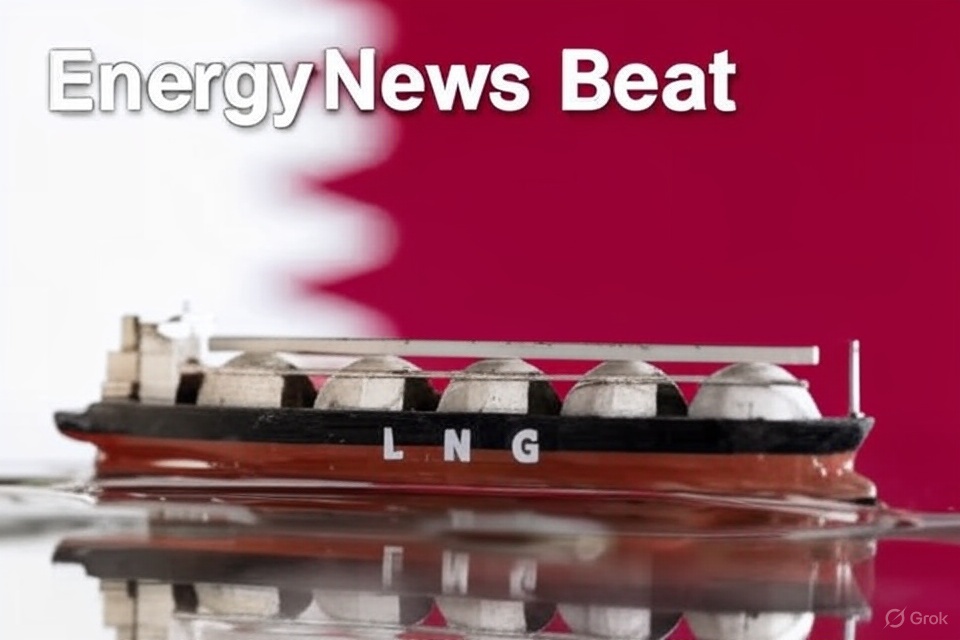In a bold escalation of tensions over the European Union’s aggressive push toward net-zero emissions, Qatar has issued a stark warning: comply with our demands or face a cutoff of vital liquefied natural gas (LNG) supplies. This threat, revealed in leaked correspondence, underscores growing international resistance to the EU’s sustainability mandates, which critics argue prioritize ideological goals over energy security and economic realities.
The controversy centers on the EU’s Corporate Sustainability Due Diligence Directive (CSDDD), a sweeping law requiring large companies operating in the bloc to address human rights and environmental risks in their supply chains, including mandatory climate transition plans aligned with the Paris Agreement’s 1.5-degree Celsius warming limit.
Qatar, the world’s third-largest LNG exporter, has no intention of bowing to these requirements. In a May 21 letter from Qatari Energy Minister Saad al-Kaabi to the Belgian government—later shared with the European Commission—Kaabi bluntly stated, “Neither the State of Qatar nor QatarEnergy has any plans to achieve net zero in the near future.”
Are you from California or New York and need a tax break?
He demanded the removal of the climate transition plan provisions, warning that without further concessions, Qatar would “seriously consider alternative markets outside of the EU for our LNG and other products, which offer a more stable and welcoming business environment.”
This isn’t an idle threat. Since Russia’s 2022 invasion of Ukraine disrupted traditional gas pipelines, Europe has increasingly relied on LNG imports to fill the gap. Qatar has stepped up as a key supplier, providing 12% to 14% of the EU’s LNG needs—equivalent to roughly 14-15 billion cubic meters (bcm) annually based on 2024 import trends, down from higher shares in previous years due to global market shifts.
In 2024, the EU imported over 100 bcm of LNG overall, with Qatar’s contributions critical for countries like Italy (where it accounted for 45% of LNG imports), Belgium, and Poland (both around 38%).
A sudden halt could exacerbate energy shortages, drive up prices, and force the EU to scramble for alternatives in an already tight global market. Qatar’s stance highlights broader backlash against the CSDDD, which could impose fines up to 5% of global turnover on non-compliant firms.
The directive, still under negotiation, has prompted the EU to propose delays until mid-2028 and limits on supply chain audits, but Doha insists these tweaks fall short.
QatarEnergy, the state-owned giant with long-term contracts to European majors like Shell, TotalEnergies, and ENI, argues the rules infringe on national sovereignty in setting climate policies.
But Qatar may not be alone in pushing back. Across the Atlantic, the United States—the EU’s top LNG supplier, accounting for over 50% of imports in early 2025 (around 16.6 bcm in the first quarter alone)—could follow suit if saddled with similar burdensome regulations.
In 2024, U.S. LNG exports to Europe totaled approximately 35-40 million tons (roughly 48-55 bcm), representing a lifeline for the EU’s energy diversification efforts.
Yet, emerging EU rules on methane emissions reporting for imported fuels are already stirring unease among American producers.
These mandates require detailed tracking and mitigation of methane leaks across supply chains, adding costs and complexity to U.S. operations.U.S. energy companies and officials have signaled resistance, seeking “flexibility” from Brussels to facilitate ongoing LNG deals and even reclassifying the EU as a free-trade partner for faster export approvals.
Environmental groups in the U.S. have urged the EU to reject pressure for more American LNG, citing its environmental footprint, while EU countries debate softening the methane rules to avoid alienating suppliers.
If the CSDDD or similar net-zero policies extend stringent sustainability reporting to U.S. exporters, demanding Paris-aligned transition plans, industry insiders warn of a potential boycott. “The U.S. isn’t planning net-zero timelines that match the EU’s ambitions,” one analyst noted, echoing Qatar’s position. Such a move could slash EU supplies by half overnight, plunging the bloc into deeper energy vulnerability and highlighting the perils of overregulating global trade partners.
As negotiations drag on, this standoff serves as a wake-up call: the EU’s net-zero zeal risks alienating the very nations keeping its lights on. With winter approaching and geopolitical tensions simmering, Brussels must balance climate ideals with pragmatic energy needs—or face a colder, costlier reality. This is one for the United States Department of Energy to get draft legislation rolling through Congress sooner rather than later. If this can get done quickly, it would stop President Trump from having to put a halt to exports and hurt revenue to the country. The message is clear: the EU, the UK, and Canada intend to enforce Net-Zero taxes on anyone who refuses to comply with them. And now is the time to get it drawn in the Tariff Sandbox before President Trump has to renegotiate terms.
Is Oil & Gas Right for Your Portfolio?
Crude Oil, LNG, Jet Fuel price quote
ENB Top News
ENB
Energy Dashboard
ENB Podcast
ENB Substack

